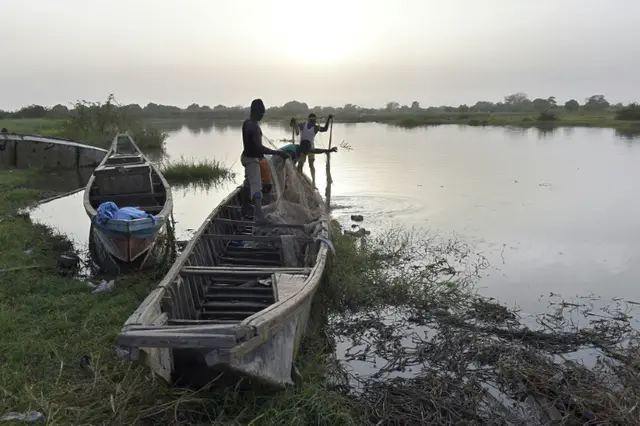Heavily armed militants have killed at least 15 peacekeepers and five soldiers in the Democratic Republic of the Congo (DRC) in one of the worst attacks on United Nations personnel in recent memory.
More than 50 peacekeepers were left wounded after fighters from a local Islamist extremist group overran a remote base in the east of the vast central African country after hours of confused fighting late on Thursday.
Many casualties are in a critical condition and the death toll is expected to rise.
António Guterres, the UN secretary general, described the attack as the worst in the UN’s recent history and “a war crime”.
“Today is a very tragic day for the UN family … I condemn this attack unequivocally,” Guterres said.
The loss is the most serious suffered in a single day by the UN since 24 Pakistani soldiers were killed in an ambush in Somalia in 1993. Local officials said Congolese army troops stationed several miles from the base also sustained casualties when they attempted to come to the aid of the UN forces, but were ambushed and beaten back.
The UN mission in DRC said on Friday it was coordinating medical evacuations from the base, situated near a bridge on the river Semuliki, 25 miles (40km) north-east of the town of Beni.
Details have emerged of a well-coordinated and complex operation launched at dusk. The attackers, armed with mortars and rocket-propelled grenades, destroyed two armoured personnel carriers, an ambulance and a truck before withdrawing.
UN attack helicopters have limited night vision equipment and remained grounded throughout the four-hour assault.
Most of the dead and wounded are believed to be from Tanzania, which has more than a thousand soldiers serving as peacekeepers in DRC. The base was home to the peacekeeping mission’s rapid intervention force, which has a rare mandate to go on the offensive.
The Tanzanian contingent is generally considered among the better armed and trained elements of the 21,000-strong UN force.
Rival militia groups still control swaths of mineral-rich eastern DRC, nearly a decade and a half after the official end of a 1998-2003 war that killed millions of people, mostly from hunger and disease.
The attack on the base has been blamed by the UN on the Allied Democratic Forces (ADF), a local group that adheres to a rigorous Islamist vision and has a history of violence.
Jason Stearns, director of the Congo Research Group at New York University, said: “The ADF is an Islamist armed group which imposes discipline based on a strict interpretation of the sharia and which is known to be extremely brutal. It is very likely the ADF were involved but also other groups ... The ADF have been in the area for 20 years and has deep links with all kinds of people.”
The ADF has launched a series of bloody attacks in recent months. UN forces and national Congolese troops have mounted operations against the group. A peacekeeper was shot and killed during a firefight in September.
At least 26 people were killed in an attack on civilians on motorbikes in October near Beni that was blamed on the group. Two peacekeepers were killed and several wounded in a separate attack.
The group, which is largely composed of converts, is not thought to have any significant links to other Islamist extremist organisations in Africa or the Middle East, though a video recently surfaced showing fighters apparently in DRC claiming allegiance to Islamic State.
A UN official said the attack represented a “serious escalation”.
The UN peacekeeping mission in Congo has recorded 93 deaths of military, police and civilian personnel. Established in 2010, it is the largest and most expensive in the world and is aimed at stabilising the restive east of the huge nation.
DRC is facing a grave humanitarian emergency, economic deterioration and worsening political instability.
“The scale of people fleeing violence is off the charts, outpacing Syria, Yemen and Iraq,” the Norwegian Refugee Council’s DRC director, Ulrika Blom, said this week.
President Joseph Kabila, in power since 2001, has ignored calls to step down after his second mandate expired almost a year ago and police have brutally crushed a series of protests. Under pressure from the US and others, Kabila has agreed to hold elections in 12 months, though many doubt his word.
“Kabila does not have any intention to leave power ... his strategy is to spread chaos across the country and then delay elections because he’ll claim there is too much violence,” said Félix Tshisekedi, a prominent opposition leader, in an interview with the Guardian this week.
The crisis has led to a breakdown in law and order, with a series of massive prison breaks and growing conflict between militias across the south and east of the country that has killed thousands and displaced millions.
The surge of ADF activity, which has been recruiting intensively in recent months, is part of this broader pattern, experts say.
“Armed groups are political animals ... They feel that something is going to happen – elections, negotiations, whatever – so are positioning themselves,” said Stearns.
Few observers see much cause for optimism.
“Congo is going to go pretty badly next year. The humanitarian crisis is up there with Yemen and Syria and the situation is degrading, the region is getting nervous and the overall situation will become more fractured and more violent,” said Stephanie Wolters, the head of a peace and security research programme at the Institute for Security Studies in Pretoria.
Maman Sidikou, the special representative of the UN secretary general in DRC, promised action “to ensure that the perpetrators are held accountable and brought to justice”.
(THE GUARDIAN)
 简体中文
简体中文



